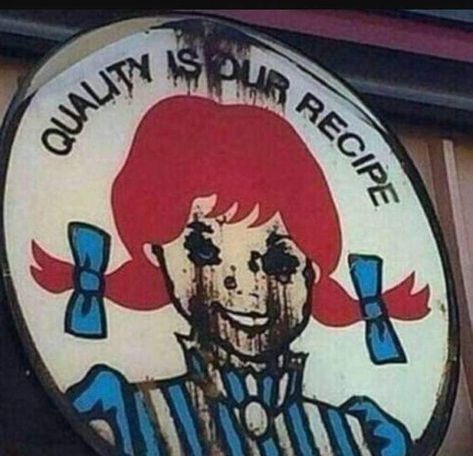An overwhelming majority of what we eat is made from plants and animals. This means that composition of our almost entire food is chemicals from the realm of organic chemistry (carbon-based large molecules). Water and salt are two prominent examples of non-organic foodstuffs - which come from the realm of inorganic chemistry. Beside some medicines is there any more non-organic foods? Can we eat rocks, salts, metals, oxides… and I just don’t know that?
Calcium carbonate, is the main ingredient in tums, and is the main component of limestone.
But limes are organic, so shouldn’t limestone also count as organic?
Not sure if shitposting or genuine idiot. 👍
porqué no los dos?
Touche!
I like to supplement me diet with glass fiber foods.
Sprinkle of asbestos to round things off
deleted by creator
FWIW, most of our use of it comes from organic sources I believe.
That our diet stems from mostly molecules described in organic chemistry can also be the direct result of the fact that there are vastly more molecules considered “organic”: about 19 million are known and the number is growing!
While for anorganic compounds, there are only about 100,000.
The separation into organic and inorganic chemistry is really only done to make it easier to talk about broader subjects in science. We need and use obviously a lot of compounds that aren’t carbon based large molecules.
Can we eat rocks, salts, metals, oxides… and I just don’t know that?
You’ll die without Iron, Calcium, Potassium, Magnesium, Zinc etc. in your diet. Your body relies on a lot of metals and salts to function.
You can see an example of a food’s breakdown here to see all the metals and salts involved in foods: Nutrition data for rice (make sure you scroll to the “Detailed Nutrition Data” section and expand the categories like “Minerals”)
Fun fact, calcium supplements are Calcium Carbonate (CaCO3) - literally chalk. But for metals which are deliberately added to food, check out the Lucky Iron Fish developed to address anaemia in Cambodia.
I mean… it seemed like a good idea and all, but it didn’t help Cambodia. It’s like only a couple paragraphs down in your link. It only addresses iron-deficiency based anemia which was not the main cause of anemia in Cambodia.
Sure, but it still works for actual iron deficiencies, even if that wasn’t the anaemia cause Cambodians were dealing with.
I’m actually considering buying one for myself, I mostly eat vegetarian foods.
Cooking in a cast iron pan will give you even more iron.
True, but they’re very heavy and I can’t just throw cast iron in the dishwasher.
deleted by creator
I know, right? I was blown away by the same when I learnt about it. Medical science is so young though, we haven’t really had much of an understanding about the chemistry of our bodies until this past century. God knows what ailments I’ve got that someone in 100 years will be all like “just dip this rock in your lunch, it’s that easy to cure”.
Reminds me of why they added iodine to salt .
Some people with too much money eat gold-plated food. So in a sense, gold is food, and it’s not an organic molecule.
A number of food additives don’t contain any carbon atoms; if you follow the links from the Wikipedia article on food additives you can find a bunch, for example sodium bisulfate which is a color retention agent.
There are also some interesting cases like the antifoaming agent Polydimethylsiloxane (found in trace amounts in, among other things, Chicken McNuggets) which I believe is technically a hybrid organic/inorganic polymer.
If you’re asking if you could survive off only non-organic, than no. Your body won’t generate energy from those things. Broadly fat, carbs, and proteins are the primary sources (there are others, but they can mostly be shoe-horned into one of those or they’re insignificant sources).
You also need a better definition of “food.” You can ingest a lot of things that are considered inorganic and not die, but that doesn’t make them food. You’ll still essentially die of malnutrition though. So your body will still starve, so I guess you could use that as part of the definition of food I suppose. But then salt doesn’t count as a food anymore, neither does water (but that makes sense at least… water has never been considered a food really).
I think you’re using a lot of words that have ambiguous meanings that folks don’t usually think about and that’s going to affect a lot of answers.
Hydrochloric acid, sodium hydroxide: common food additives to balance its pH. Technically included by the OP, as they’re made from water and salt.
Silica: another common food additive (anticaking agent). Arguably “not food” because your body will simply poop it, undigested.
Metallic iron: if you’re cooking in a metallic pot, some of the metal leaks into the food. Actually good in this case as iron is an essential mineral.
Metallic lead [historical]: the Romans used lead pots quite a bit, specially to boil either vinegar or barely fermented wine (mustum). The result is extremely sweet due to lead acetate, the first artificial sweetener that I’m aware of …and extremely toxic. (OK, it’s a partially organic salt due to the acetate anion, but still.)
Calcium carbonate: already mentioned by another user. It’s essential to nixtamalise maize, but it’s also used for stuff like candied pumpkin cubes.
Many minerals that are quite essential are used by other organisms so we get it that way, but that doesn’t mean we have to. A good example is iron. Rust isn’t a bioavailable form of iron compared to what you’d get from plants and animals, but you could eat rust and make some of the iron in it ferric chloride that you could then use for making hemoglobin. It’s just not very efficient. What you can’t do is get energy from inorganic molecules. We can only get energy from things on the citric acid cycle(or are made up of components of it), alcohols, sugars, fats, and proteins.
Baking soda is also an inorganic compound.
In recent years, activated charcoal.
(Because many people apparently don’t know this: Don’t eat activated charcoal if you take any medication, it can render your medication ineffective)
Edit: Wait, I’m dumb, charcoal is very much carbon-based.
Edit: Wait, I’m dumb, charcoal is very much carbon-based.
I think that it still fits. People don’t usually consider amorphous carbon, diamonds, graphite or fullerene as “organic”, even if carbon-based.
I have to admit, chemistry has been a while and I don’t remember the exact definitions of organic vs inorganic chemistry, so I just went off the “carbon-based” in the OP.
The textbook definition is something like “carbon covalently linked to other junk”. (The other junk is usually hydrogen, nitrogen, oxygen, sulphur.) So it usually excludes [macro]molecules made exclusively of carbon, like those.
Bicarbonate soda, used heavily in baking. Vinegar (acetic acid as opposed to natural fermentation)
acetic acid is organic, as in, it is an organic compound
Bicarbonate is also organic.
Edit: I found a source that says an organic compound must have a carbon-hydrogen bond. I knew CO and CO2 were inorganic, but more as an exception.
i wouldn’t say that bicarbonate or carbonate are organic, as derivatives of carbon dioxide. protonation state shouldn’t change if compound is organic or not
neither is CN-, HCN, HOCN, metal carbonyls, oxalates or oxalic acid. i’d say that phosgene, urea and CCl4 are organic. same goes for higher homologs (HSCN, thiourea, thiophosgene, CS2 and so on)
Taco Bell.
The word “organic” has a number of different meanings.
organic adjective (OF FOOD PRODUCTION)
- not using artificial chemicals in the growing of plants and animals for food and other products:
- being or coming from living plants and animals
…(skipping a few others)
organic adjective (IN CHEMISTRY)
- (of a chemical substance) containing carbon
So the chemistry definition isn’t the relevant one when applied to food. The “Carbon based molecules” definition isn’t even the original one and it only applies in the context of science, not food.












